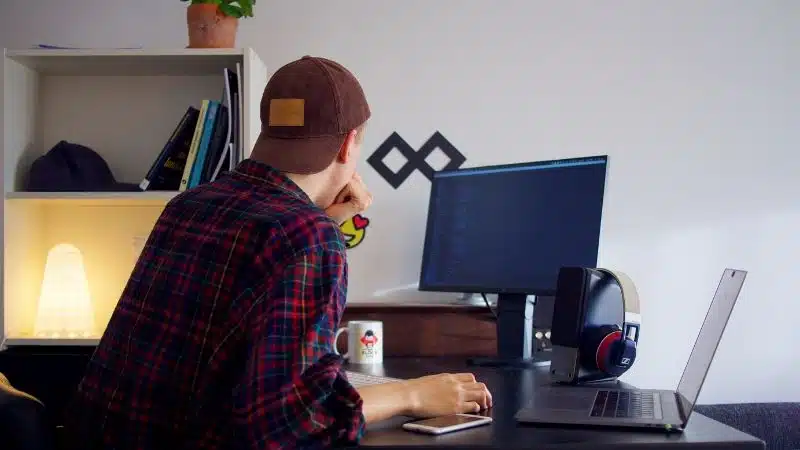Music supervisors are the gatekeepers of the music that gets into films and TV shows. Every day, they recieve a mass of pitches from optimistic musicians hoping to get their track featured on the big screen. To get noticed among a sea of hopefuls, you’ll need to sharpen your skills. To help you out, here are some tips and tricks to help you get noticed by music supervisors.
How to Get Heard By A Music Supervisor
Do your Research
TV shows and movies use different styles of music depending on the vibe, setting, or mood of the production. Being aware of what style of music they typically use will inform you of which opportunities you’re best suited for.
- Look for productions that fit your style of music, ideally for shows you watch and legitimately like. Keep those at the top of your list.
- With Tunefind.com, you can find out what music has been used in each episode of a particular show or movie.
- You can also type in the name of any artist you sound similar to and find out if and where their music may have been synced before.
Chances are if similar artists have found success on a certain show or film, you might too. It’s a good idea to consider the stature of the artists used and take that into account. If every song used in a show is by a big hit artist, chances are they’re not interested in anything less. If you see a bunch of indie artists, chances are the supervisor will be receptive to giving you a shot.
Film is a bit trickier. Sometimes there’s not any history to look at, and once the film is out, your chances of getting your music in are literally zero. Films are also a bit less likely to use unknown artists. However, if you’re a film buff and are interested in doing some research, you can find endless amounts of blogs about films in production. Deadline.com is a good place to start.
Know Your Target
The next step is to find out who the music supervisor is for the show or movie you want. To figure out which music supervisor is working on which production, you can go to IMDB.com and search for the production you are targeting.
- Scroll down until you find out who they are, then click on their name to check out their profile.
- You can also see what other productions they are working on as well.
- Once you find someone you want to send your music to, go read an interview, watch a panel on YouTube, or maybe follow them on social media and read up a bit on them before you engage.
Perfect Your Song Production Skills
Whether you’re pitching pre-existing songs or writing a new one from scratch, whatever you produce has to sound just as good as everything else that the music supervisor is going to hear. And that’s generally pretty damn good. If your music is not mixed or mastered properly, they will definitely consider something that is instead. So take the time and make sure that anything you send a music supervisor sounds as polished as possible. Nobody gets syncs on rough demos.
Especially for licensing purposes, the quality needs to be top notch.
————
Learn more…
How to Prepare Your Music for Sync Licensing
About Sync Representation with Symphonic
————
Be Selective
Whatever you decide to send over, make sure it’s on point. Only send over music that fits the genre of the film or TV show you’re pitching to, and know something about who you’re sending it to. Music supervisors are busy. They don’t need their time wasted on a million random song submissions. Just be sure to do your research and be confident about what you’re sending before you send it.
Send Download Links
It’s important to send downloadable files so the music supervisor can share it with editors who will ultimately test it up to picture, but don’t attach mp3s to emails. Just don’t. It clutters up their inboxes, which are already overflowing with content. Instead, use a file sharing service like hightail.com, box.net, etc.
Send High-Quality MP3’s
All submissions should be MP3’s with the highest bitrate possible, generally 320kbps is standard. Don’t send full resolution WAV or AIFF files. If they need one down the road, they’ll request it.
Make sure your metadata is properly filled out
Distributing music without accurate metadata is like publishing a book with a blank cover. Metadata is the world’s way of knowing everything about your music that’s not on the recording.
For licensing purposes, the more information you give the better. You want to give whoever is making the decision to license your track all the information they need about your song. Be sure to include writer names, label info, the release year, lyrics and contact information for licensing. You can also include descriptive keywords in the comments section underneath your contact information, which will make it more visible in searches within their library. Just make sure they’re accurate.
Work With a Sync Rep
There are many companies out there that specialize in representing artists for sync licensing. They’re often highly selective since they only get paid whenever there’s a placement. But as a Symphonic Distribution client, you have the opportunity to apply for representation by our in-house sync licensing division, Bodega Sync. If accepted, they’ll help place your music by pitching to music supervisors and advertising agencies, negotiating licensing deals and completing all the paperwork to make sure you get paid properly.
Click Here to Apply for Sync Representation with Bodega Sync.
In Conclusion…
Getting noticed by a music supervisor lies solely within how you go about it. Just be professional and respectful. Music supervisors are very busy people. Doing everything you can to make their job as easy as possible goes a long way.


One Comment
Comments are closed.